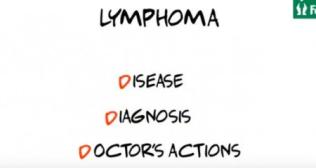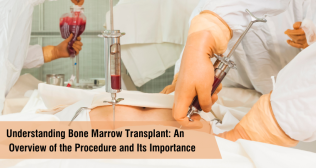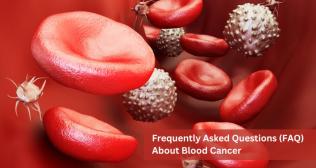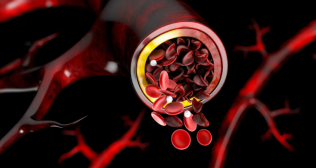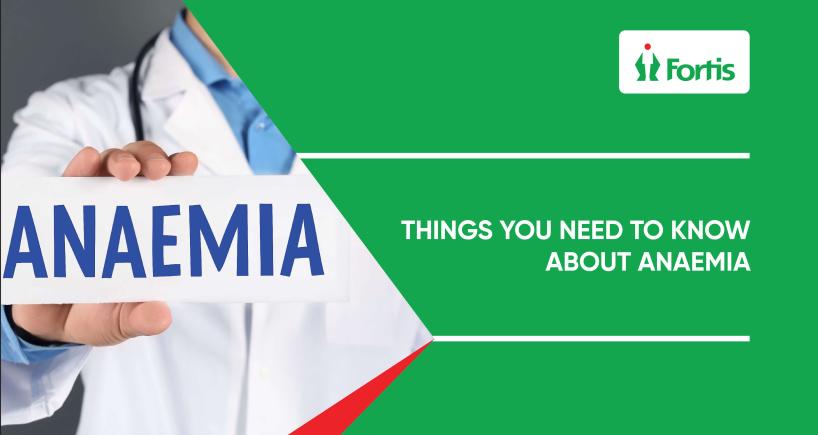
Haematology
Things you need to know about Anaemia
Dr. Subhaprakash Sanyal & Team Apr 05, 2024
Anaemia is the most common blood disorder affecting around one-third of the world’s population. Even so, many people are unclear about what exactly anaemia is and how the condition is managed. Here’s what doctors at Fortis Hospital, Mulund, which is internationally recognised as one of the best treatment centres for blood-related disorders, including anaemia, want you to know about the condition
- Anaemia occurs when your body does not produce enough red blood cells and haemoglobin - the main protein in red blood cells that carries oxygen and delivers it through out your body.
- Anyone can get anaemia, however, the condition is 10 times more likely to occur in women (mainly due to blood loss during menstruation and childbirth). Other groups of people who may be at a higher risk include people with a diet low in iron, infants born prematurely, people over 65, and individuals with a chronic condition. Anaemia is also common during pregnancy as the body needs more iron to make more blood to supply oxygen to the unborn baby.
- There are more than 400 types of anaemia - with blood loss, reduced or impaired red blood cell production, and the destruction of red blood cells being the main causes. Iron-deficiency anaemia is the most common type of anaemia. A diet rich in iron and other essential nutrients can help stave off iron deficiency anaemia and vitamin deficiency anaemia. Other several types include aplastic anaemia, sickle cell anaemia, thalassemia, and vitamin deficiency anaemia.
- You might have heard that pica (craving and chewing substances with no nutrition such as ice, clay and chalk) is a symptom of iron deficiency anaemia. Pica is often seen in children with anaemia. In some cases, other nutritional deficiencies such as zinc may be associated with pica. Pica is also a sign of emotional problems like stress, obsessive-compulsive disorder or a developmental disorder in some individuals. Seek medical help right away if you or your child eat items that have no nutritional value. Treatment can help prevent serious consequences.
- People with anaemia may feel more tired or fatigued than they usually do as their organs are not receiving the oxygen they need to do their jobs. Looking more pale than normal is another symptom of anaemia to watch out for. Other symptoms may include shortness of breath, headaches, light-headedness, chest pain, fast or irregular heartbeat, etc.
- Mild anaemia may cause few or no symptoms, but it can still be serious. This is due to the fact that anaemia caused by a serious health problem - such as cancer - may show up at an early stage, when the condition is quite mild. You must see a doctor if you suspect that you have anaemia. Figuring out the underlying cause and getting prompt treatment can reduce the risk of serious complications.
- Anaemia can be detected with a blood test called a complete blood count, although there are additional diagnostic tests. Depending on the type and severity of anaemia, treatment range from making dietary changes and taking supplements to having medical procedures.
Categories
Clear allMeet the doctor

Dr. Subhaprakash Sanyal & Team
CONSULTANT HAEMATOLOGY | Fortis Mulund
- Haematology | Haematology | Paediatric Haematology and BMT
-
14 Years
-
2000








